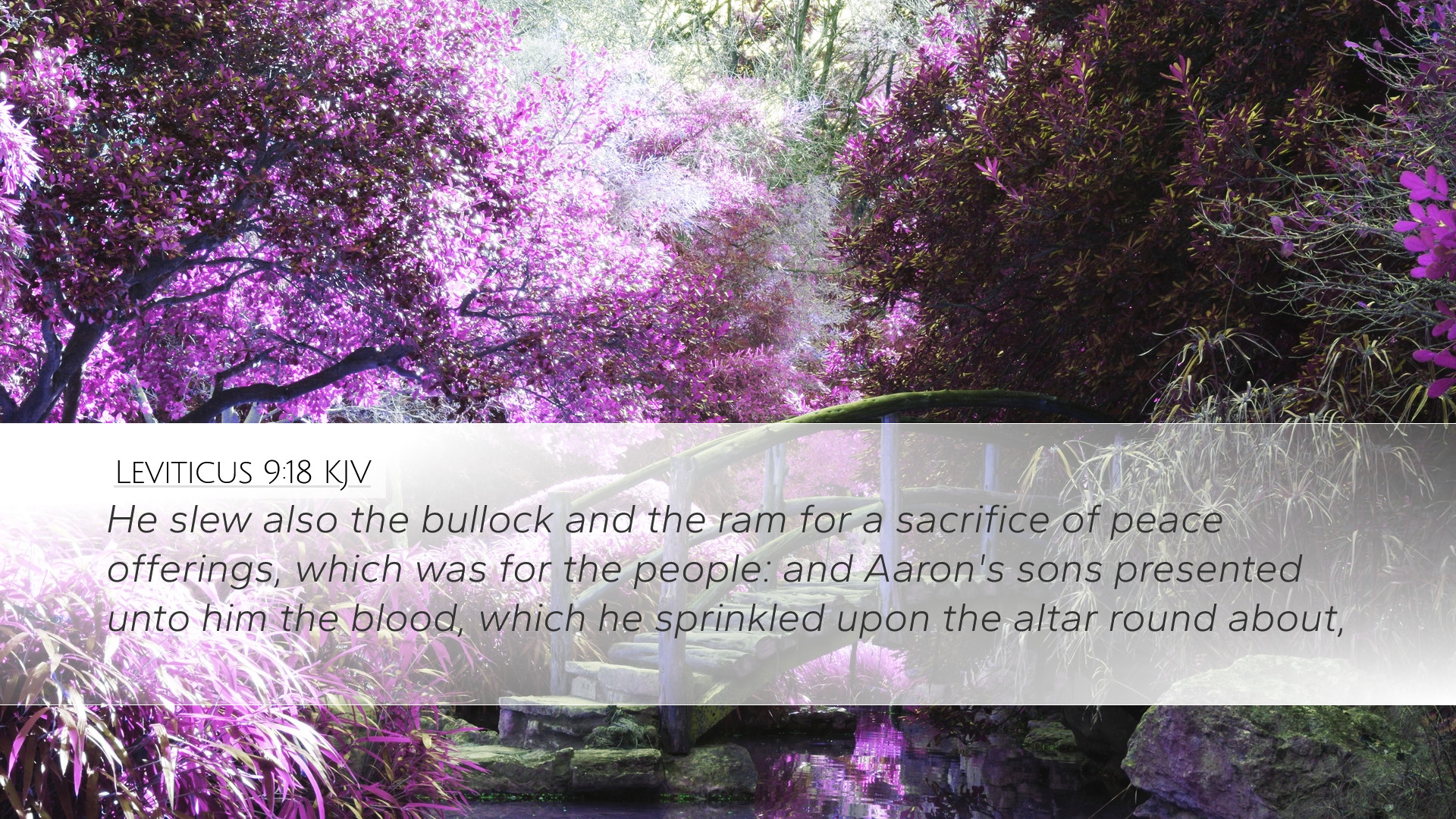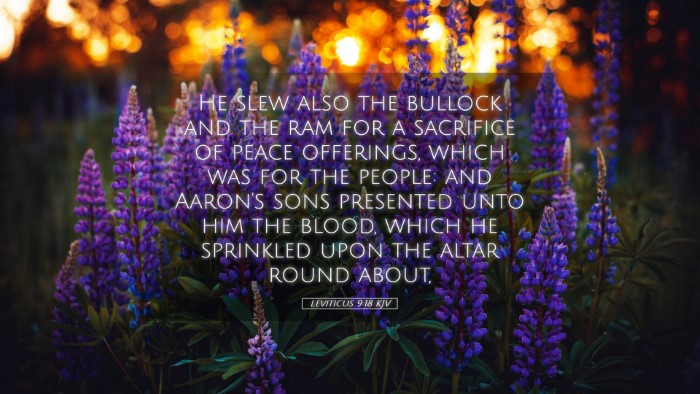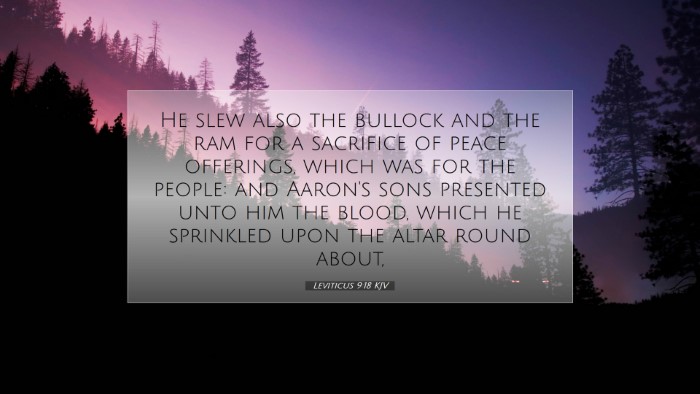Commentary on Leviticus 9:18
Verse: “And he slew the ox and the ram, and the blood was sprinkled on the altar round about.”
Introduction
Leviticus 9:18 presents a significant moment in the establishment of the Mosaic sacrificial system. This verse occurs in the context of the consecration of Aaron and his sons as priests and serves as an important commentary on the role of sacrifice in relation to worship and atonement.
Commentary Insights
1. The Importance of Blood Sacrifice
According to Matthew Henry, the act of slaying the ox and the ram symbolizes the seriousness of sin and the necessity of atonement through blood. Throughout Scripture, blood represents life and a means of reconciliation with God. The shedding of blood is foundational to the atonement process, highlighting God's holiness and justice.
2. The Role of the Priest
Albert Barnes emphasizes the critical role of the priest in this sacrificial system. Aaron and his sons, as priests, are mediators between God and the people. The act of sprinkling blood on the altar represents not only the atonement for the individual but also the priest's role in making intercession. This sets a precedent for the later understanding of Christ as the ultimate High Priest, whose sacrifice was once for all.
3. Symbolism of the Altar
Adam Clarke notes the significance of the altar in the sacrificial rite. The altar is the place of sacrifice, symbolizing Christ’s sacrifice on the cross. Sprinkling the blood on the altar signifies that God accepts the sacrifice and the atonement for sin. It also creates a covenant relationship between God and His people—a theme prevalent throughout the Pentateuch.
4. The Community Aspect of Sacrifice
Matthew Henry also brings to attention the community aspect tied to the sacrifices. These acts were not solely personal but were communal acts of worship, where the entire nation participated through their representation by the priests. This reinforces the unity of the nation of Israel in their worship and obedience to God.
5. A Preparation for Corporate Worship
Albert Barnes notes that the actions described in this verse prepare the people for a more profound encounter with God. The ritual reflects the need for preparation in worship. Sin must be dealt with, and a proper approach to God requires acknowledgment of His glory and our unworthiness.
6. Typological Significance
Both Henry and Clarke underscore the typological significance of these sacrifices. They foretell the ultimate sacrifice of Christ, who fulfills and surpasses the Old Testament sacrificial system. The particulars of this ritual serve as a foreshadowing of the New Covenant, demonstrating God’s provision for redemption through Christ’s sacrifice.
Conclusion
Leviticus 9:18 presents a rich tapestry of theological significance that speaks to the hearts of pastors, students, and theologians alike. The verse encapsulates the seriousness of sin, the necessity of sacrifice, and the important role of the priesthood. It serves as a reminder of the ultimate sacrifice that Christ made, fulfilling the need for atonement once and for all. Through understanding this verse within its larger context, believers are encouraged to approach God with reverence and gratitude for the grace afforded to them through Christ’s sacrifice.
Reflection Questions
- What does the blood sacrifice in the Old Testament tell us about the concept of atonement?
- How do the roles of the Old Testament priesthood inform our understanding of Christ's role as our High Priest?
- In what ways does this passage inform our corporate worship practices today?


